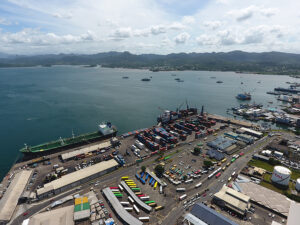Fiji recorded five new leptospirosis deaths, among them a teenager from Ba, and 111 new cases, in three weeks, the majority of which were reported in the western division.
Since 25 April, total confirmed cases have risen to 2068, of which 42 per cent were recorded in the West, 35 per cent in the central division, 21 per cent in the North and 3% in the eastern division whilst death numbers now total 41.
Among the five recent deaths was a 16-year-old from Ba who died on 13 April 2022 at the Lautoka Hospital where two other deaths were recorded – including a 41-year-old male from Lautoka on 19 April, and a 50-year-old male from Ba on 21 April. Another, a 31-year-old male from Ba died at home or en-route to hospital on 2 May. The fifth reported death was recorded at the CWM Hospital where a 39-year-old male from Qamea died on 3 May.
The four new deaths in the West bring to 30 total deaths recorded in the division this year. Six were recorded in the North, four in the central division and one in the eastern division.
Admissions
For national leptospirosis hospital admissions so far this year, there have been 681 people admitted in total- noting that this includes suspected and lab-confirmed cases. Total leptospirosis hospital admissions this year by division are as follows:
- 380 people have been admitted to the hospital for leptospirosis in the West, with 14 new admissions last week, indicating a plateau in the trend compared to the previous week.
- 179 people have been admitted to the hospital for leptospirosis in Central with 5 new admissions last week, a plateauing trend compared to the admissions in the previous week. There have been 4-5 admissions a week in Central over the last 4 weeks.
- 103 people have been admitted to the hospital for leptospirosis in the Northern Division, with 1 new admission in the last week, which is a decrease in the admission trend compared to the 8 admissions in the week before.
- 19 people have been admitted to the hospital in the Eastern Division, with no new admissions since the last update.

Prevention
The leptospirosis bacteria is spread to humans through the urine of infected animals, such as cows, pigs, rats, and dogs. To reduce your individual risk, it is important to understand that exposure to animals, soil, mud, and floodwaters during work or recreational activities increases your risk of infection.
Important prevention measures include wearing full covered footwear at all times when going outdoors, avoiding wading or swimming in flooded waters, using clean fresh water to wash up after exposure to muddy waters, and keeping all food and drinks covered and away from rats. For workplaces, practice good personal hygiene at all times, cover cuts and wounds well, and use protective equipment, especially footwear when in flooded and/or muddy areas.
Parents and guardians are also urged to prevent children from playing in the mud or swimming in flooded rivers or creeks, and ensure that they wear shoes when outside.
Symptoms and treatment
Early treatment can decrease the severity and duration of the disease. Please seek medical care if you have recently had contact with floodwaters, mud, or animals, and develop the following symptoms: fever, muscle pain, or headache. You may also have red eyes, loss of appetite, nausea/vomiting, dizziness, or feel weak.
Leptospirosis can be treated with appropriate antibiotic medications prescribed by a doctor if treatment is sought early. Danger signs for severe leptospirosis include shortness of breath, coughing blood, chest pain, yellow eyes/skin (jaundice), signs of bleeding (including unexplained bruising), decreased or increased urination, and difficulty staying awake. Severe leptospirosis is life-threatening, and anyone with these symptoms must be taken to the hospital immediately.









